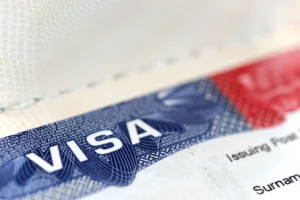The advantages of drafting a Last Will and Testament in Thailand are obvious. For one, it prevents legal disputes and confusion among heirs. It also avoids lengthy bureaucratic procedures. However, before you get started, make sure you understand the legal requirements for drafting a Last Will and Testament in Thailand. Here’s some information on the process. Once you understand the requirements, you’ll be well on your way to making an effective Thai will.
Creating a living will in Thailand
A Living Will in Thailand is a legal document that specifies your wishes if you become terminally ill. While Thailand does not allow euthanasia, it recognizes the importance of having such a document on file. It allows you to tell medical staff not to perform life-extending procedures if they are inconvenient or painful for you. It can also include a financial power of attorney. It is important to note that a Living Will is different from a Last Testament, which deals with your estate upon death.
In Thailand, there are many laws that must be followed to create a Will. Thai law requires all Wills to be drafted in Thai and witnessed by two people. Once you have completed a Thai Will, you can submit it to your district office for registration. A legal document is important for the long-term security of your family, especially in a foreign country. A living will is also a good way to plan your legacy and provide your beneficiaries with guidance should something unexpected happen to you.
Legal requirements of a Thai last will and testament
Unlike many other countries, Thailand requires that all wills contain certain specific requirements. For instance, the writer of a will cannot be a beneficiary. He or she must make a statement to prove that he or she is the writer. If he is a minor, the writer of a will can make an arrangement to have his or her executor hold the property for a minor. Minors may also appoint guardians who can manage the property.
For foreigners, there are specific requirements to meet in order to avoid potential conflicts with relatives in their home countries. One such requirement is the limited jurisdiction clause. Generally, this clause states that your last will and testament should be made in Thai language. Regardless, of whether you plan to live in Thailand for the rest of your life, a last will and testament will help your family know your wishes. If you are planning to leave your estate to your loved ones in Thailand, this clause should be included.
Beneficiaries of a Thai last will and testament
A LAST WILL enables you to specify who is to receive your assets upon your death. The Civil and Commercial Code of Thailand specifies the statutory heirs. A LAST WILL helps to protect your wishes for your family and beneficiaries. If you have no LAST WILL, your assets will be distributed according to Thailand’s laws. If you have one, make sure to leave it with a witness or at least two witnesses.
If you have assets in Thailand, you must detail them in your Thai Last Will and Testament. Listed assets in your Thai Last Will and Testament should include real estate, bank accounts, vehicles, personal items, etc. It is advisable to have your last will and testament written by an experienced Thai lawyer. Your beneficiaries must be Thai residents, and your Thai will should follow the laws of your home country. If you have children, you may need to appoint a guardian for them.
Cost of a Thai last will and testament
If you own property in Thailand, making a Last Will and Testament is a great idea. While not legally required, it is important to ensure that your beneficiaries are properly taken care of in case you die unexpectedly. Even if you do not have any loved ones living in Thailand, a Last Will and Testament can make the inheritance process easier. Read on to learn more. And don’t forget to get the right Thai lawyer to draft your Last Will and Testament.
Creating a Thai last will and testament is one way to protect your assets and prevent family quarrels. Without one, your Thai estate will be subject to Thai law, so you want to make sure that your wishes are carried out as you intended. Having a properly executed a last will and testament can prevent the possibility of this occurring. You can save money by avoiding the hassles of succession and ensuring that your heirs receive what you wanted.




